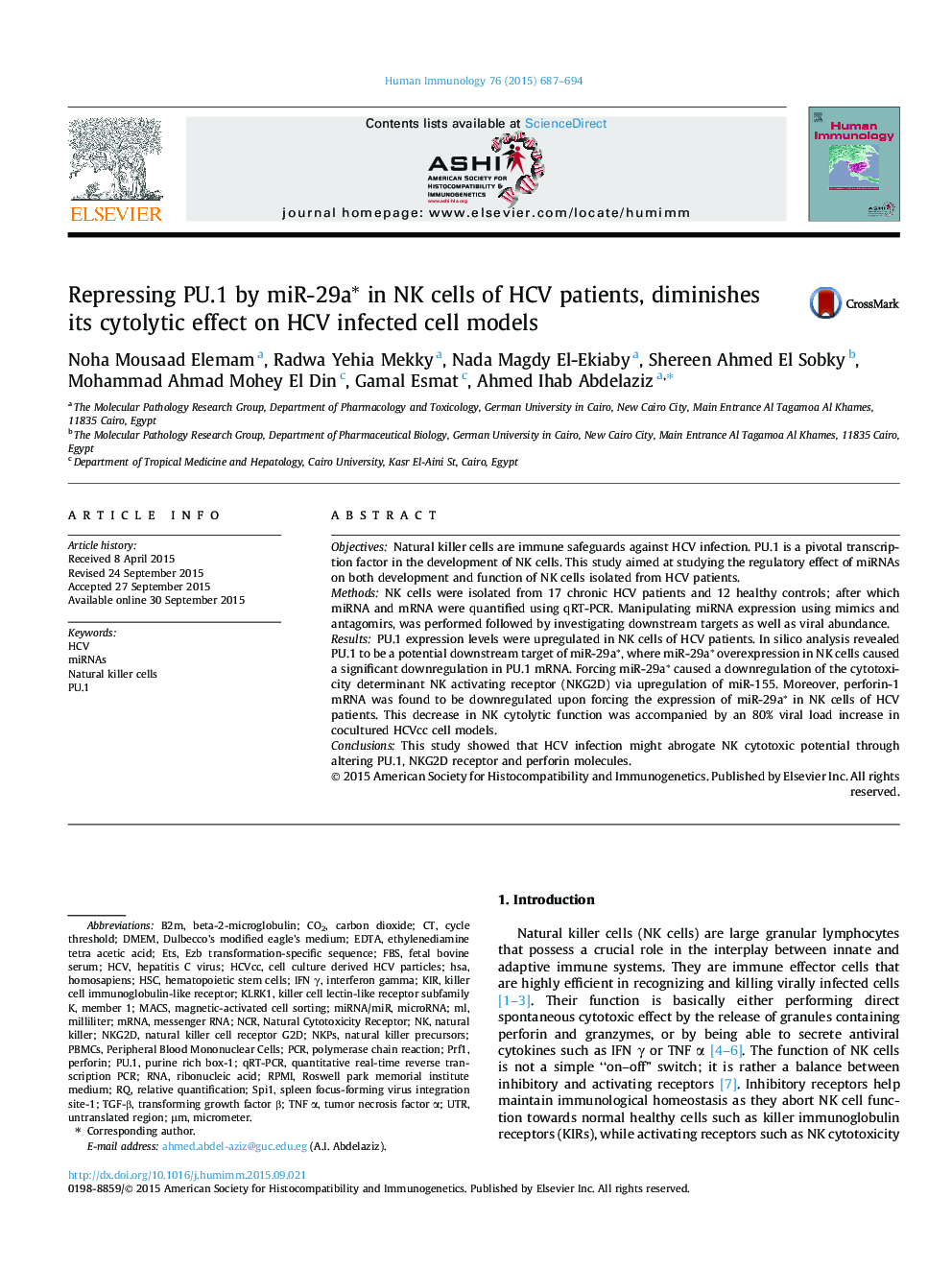| Article ID | Journal | Published Year | Pages | File Type |
|---|---|---|---|---|
| 3349769 | Human Immunology | 2015 | 8 Pages |
ObjectivesNatural killer cells are immune safeguards against HCV infection. PU.1 is a pivotal transcription factor in the development of NK cells. This study aimed at studying the regulatory effect of miRNAs on both development and function of NK cells isolated from HCV patients.MethodsNK cells were isolated from 17 chronic HCV patients and 12 healthy controls; after which miRNA and mRNA were quantified using qRT-PCR. Manipulating miRNA expression using mimics and antagomirs, was performed followed by investigating downstream targets as well as viral abundance.ResultsPU.1 expression levels were upregulated in NK cells of HCV patients. In silico analysis revealed PU.1 to be a potential downstream target of miR-29a∗, where miR-29a∗ overexpression in NK cells caused a significant downregulation in PU.1 mRNA. Forcing miR-29a∗ caused a downregulation of the cytotoxicity determinant NK activating receptor (NKG2D) via upregulation of miR-155. Moreover, perforin-1 mRNA was found to be downregulated upon forcing the expression of miR-29a∗ in NK cells of HCV patients. This decrease in NK cytolytic function was accompanied by an 80% viral load increase in cocultured HCVcc cell models.ConclusionsThis study showed that HCV infection might abrogate NK cytotoxic potential through altering PU.1, NKG2D receptor and perforin molecules.
